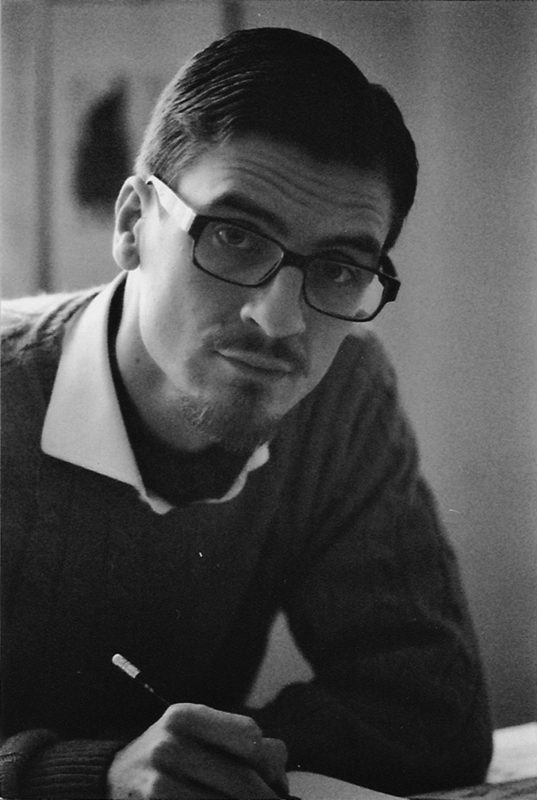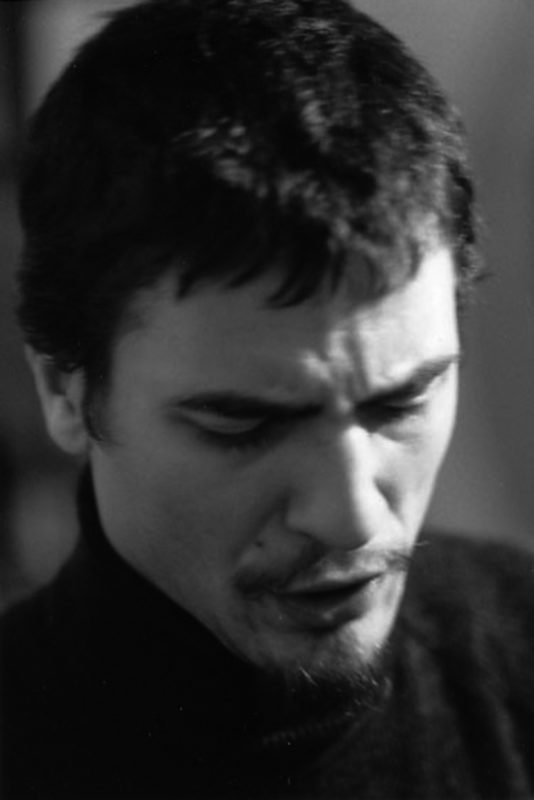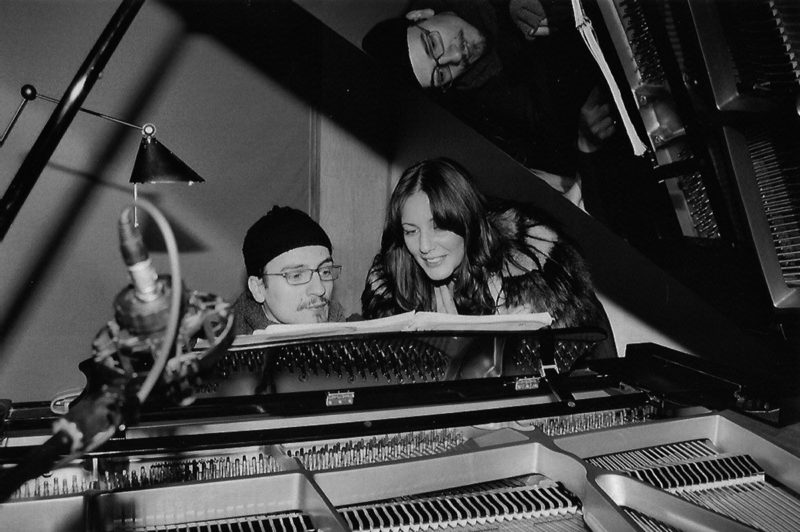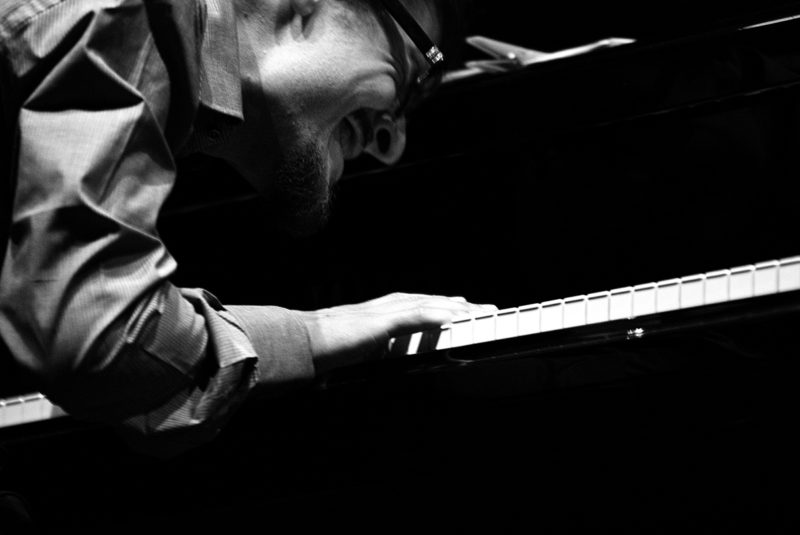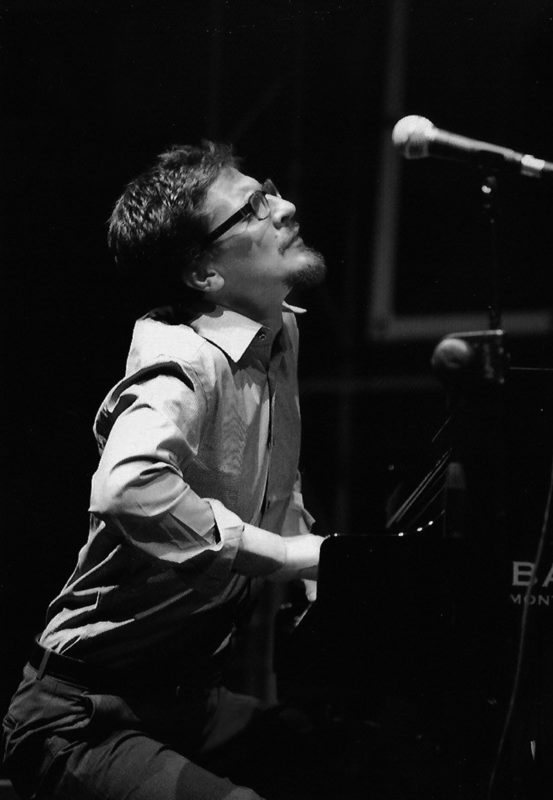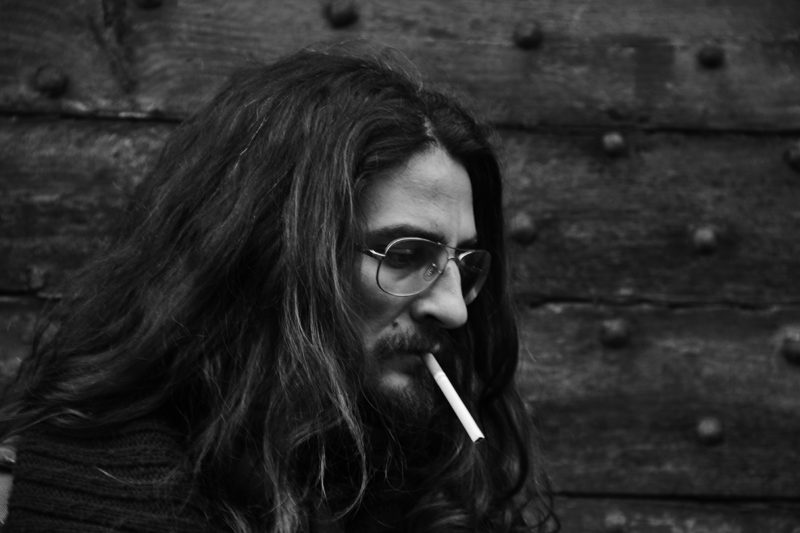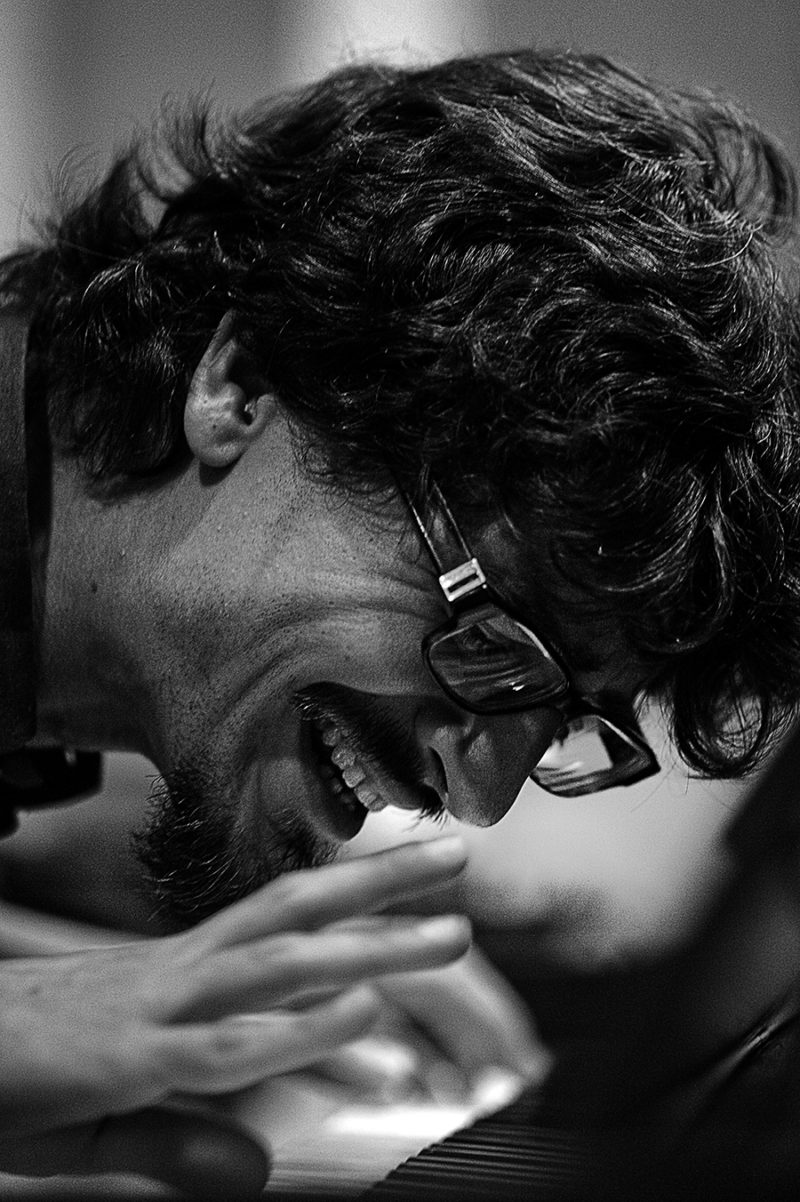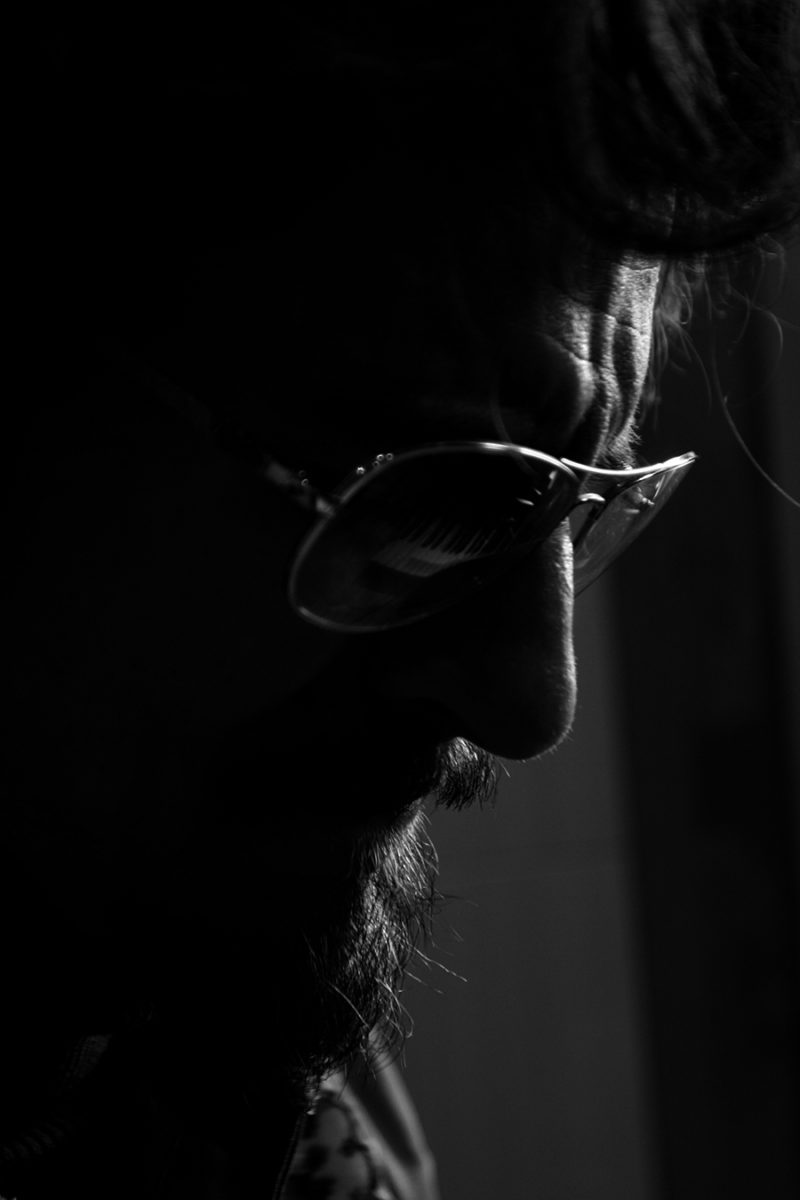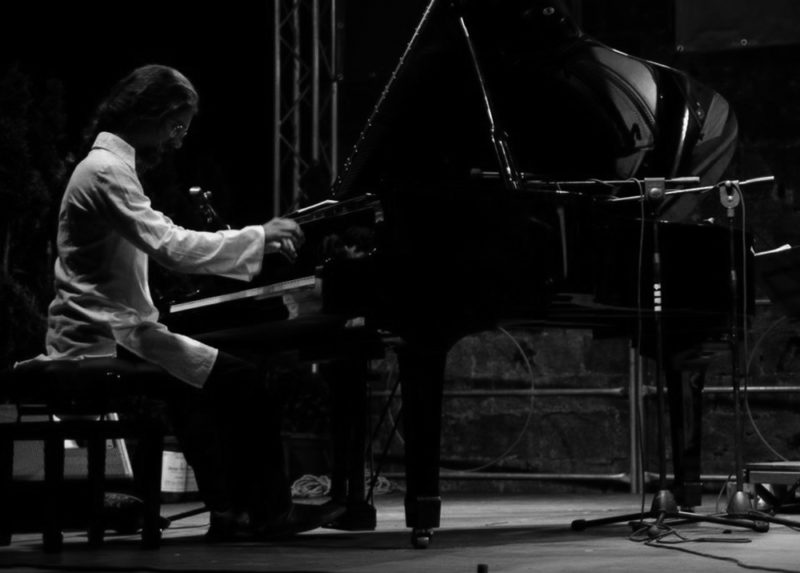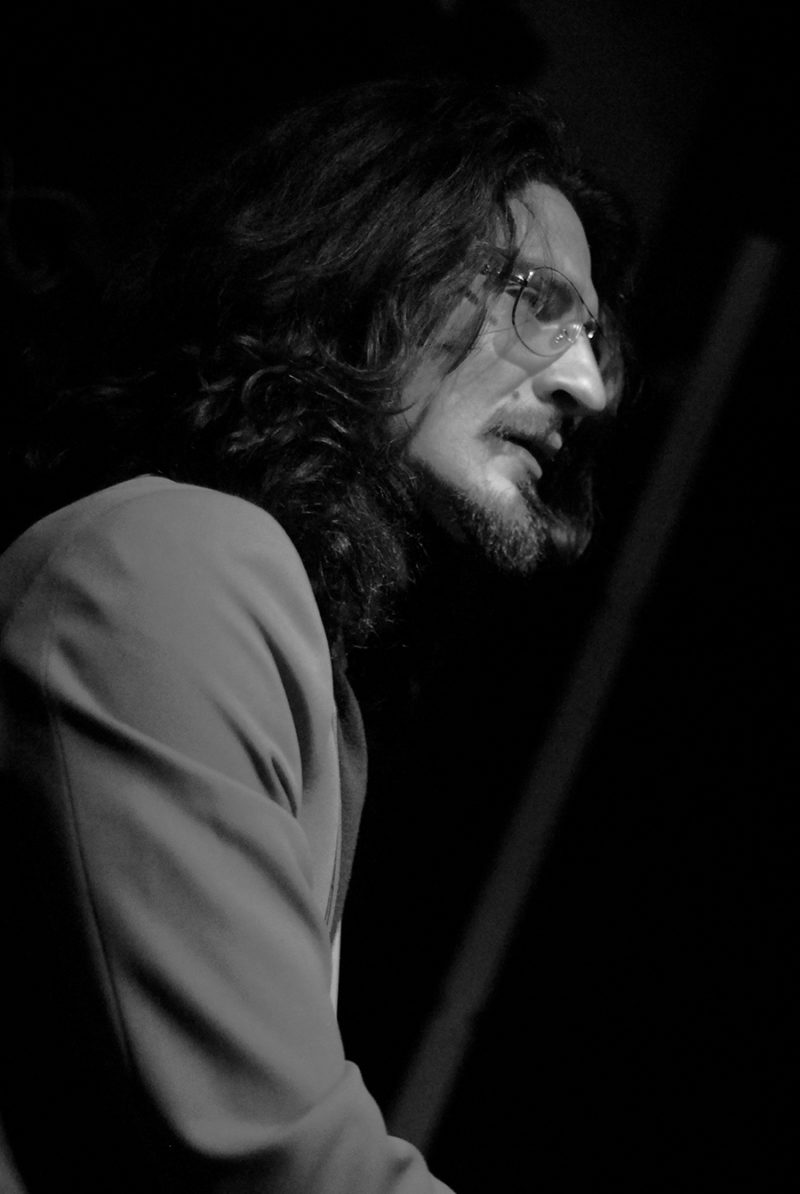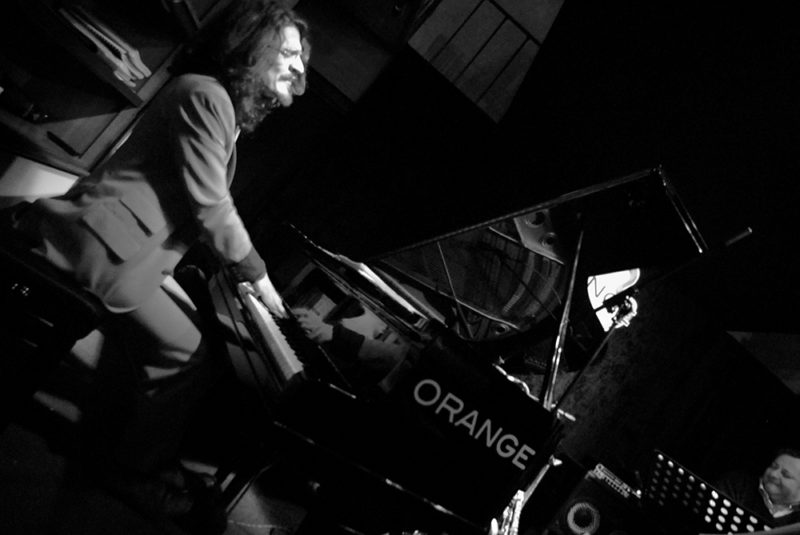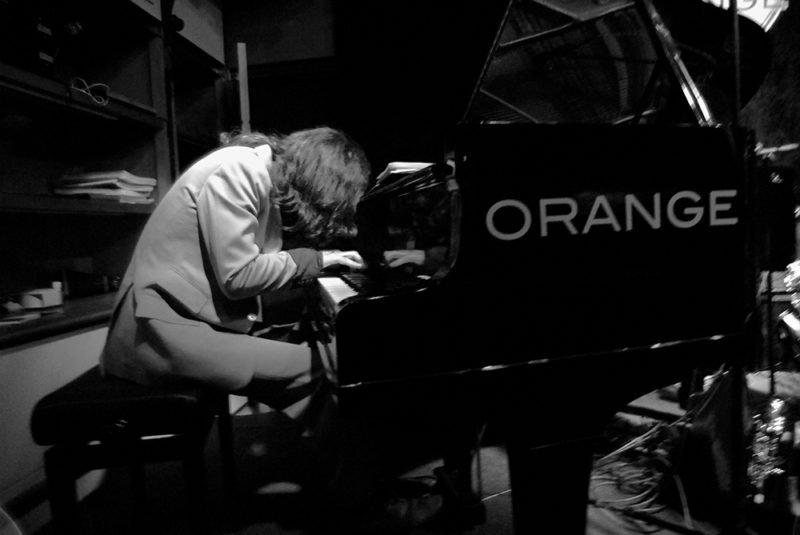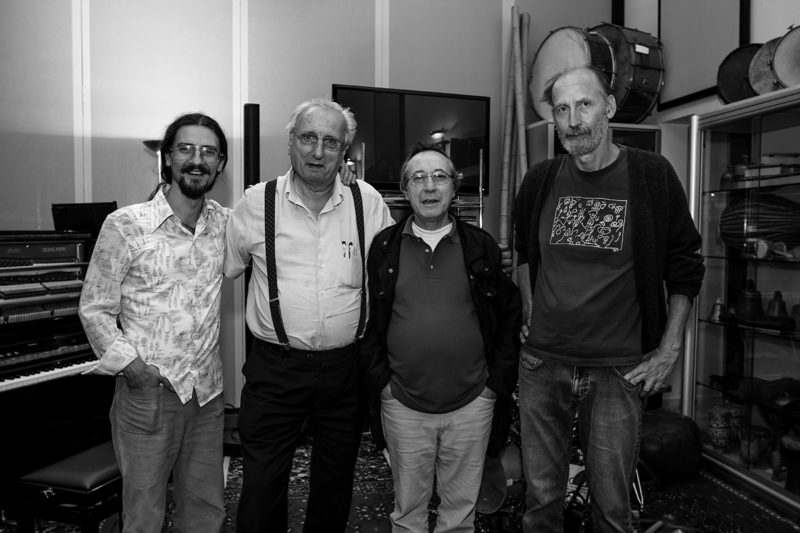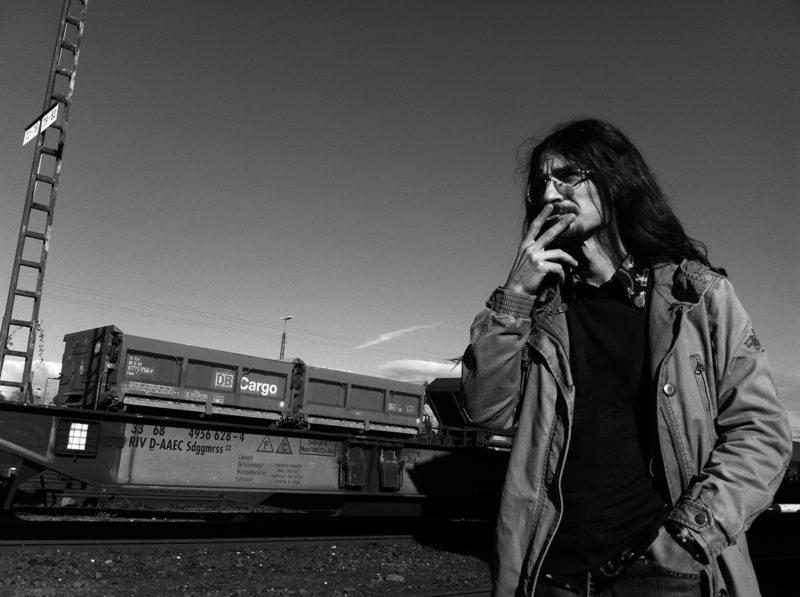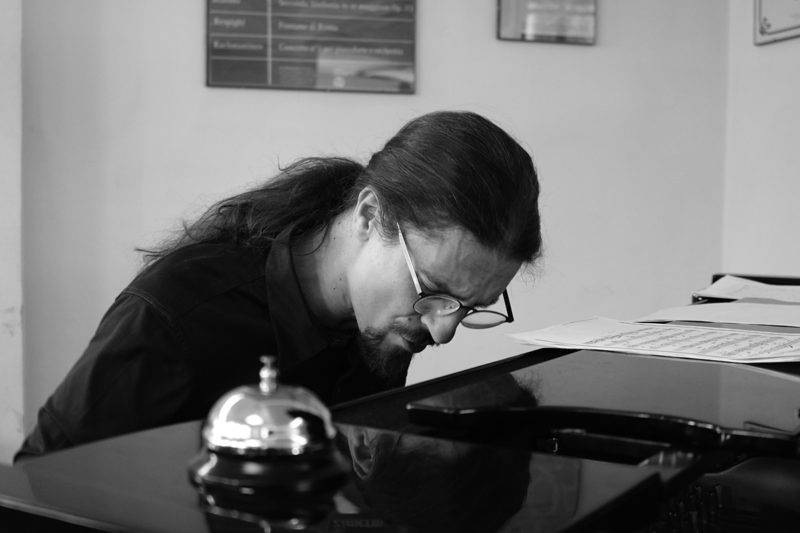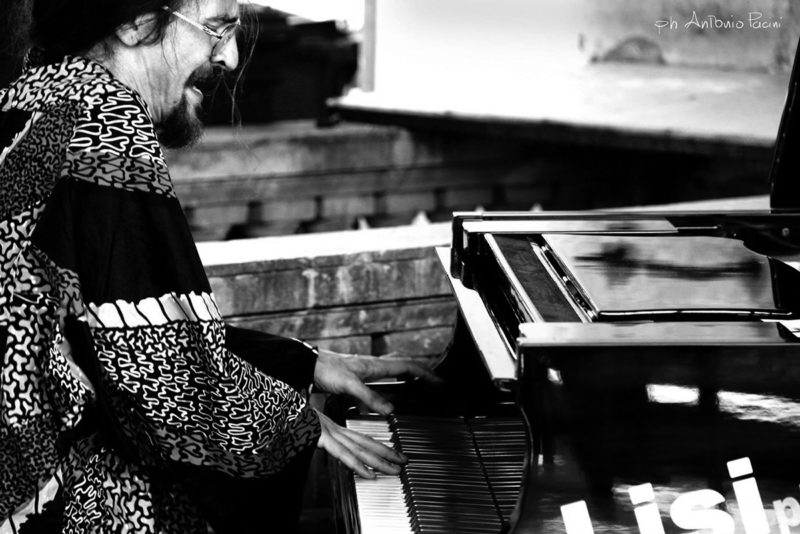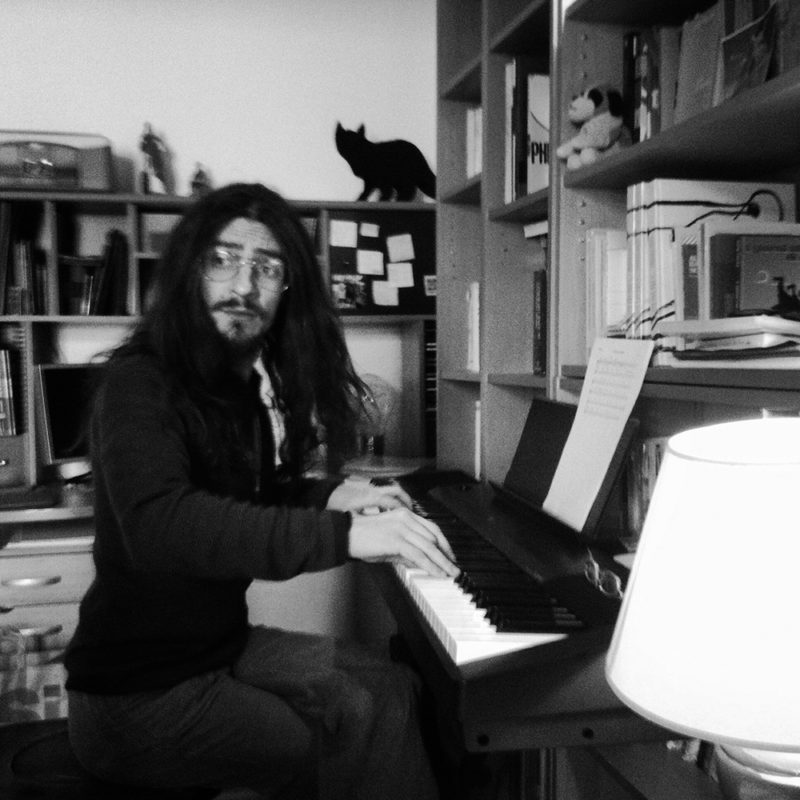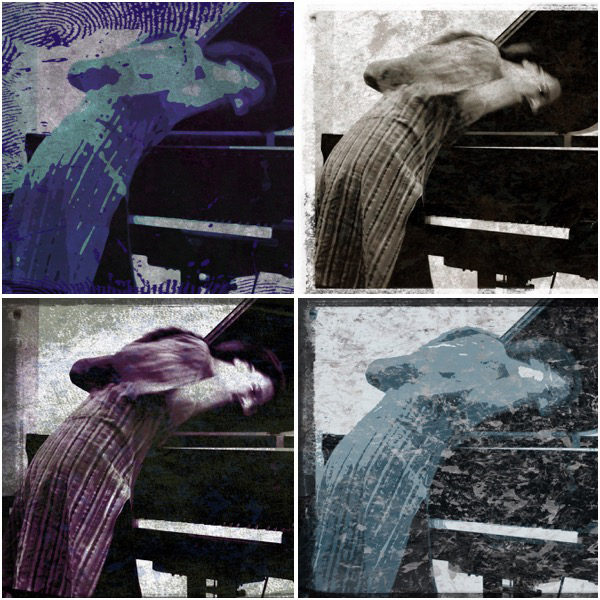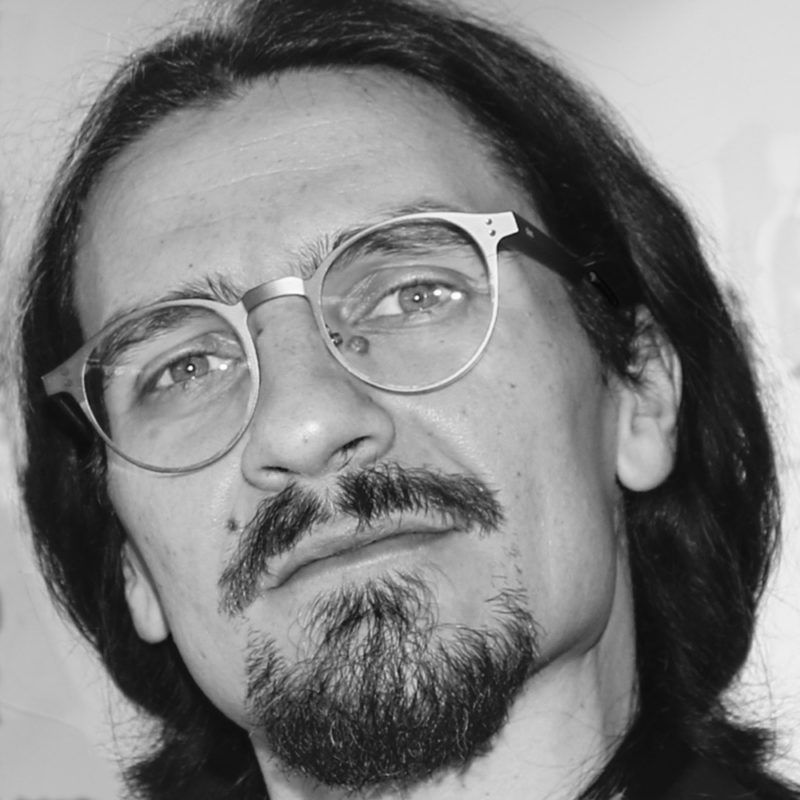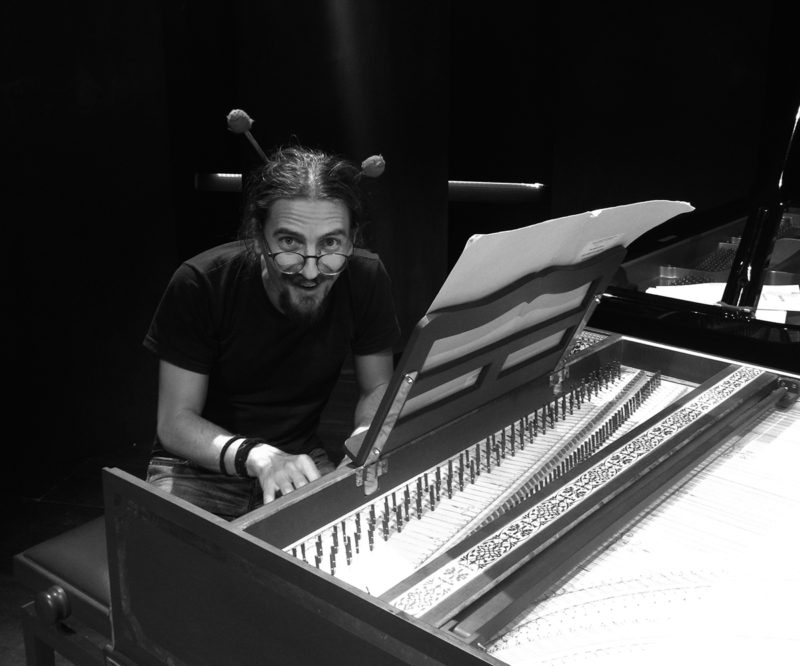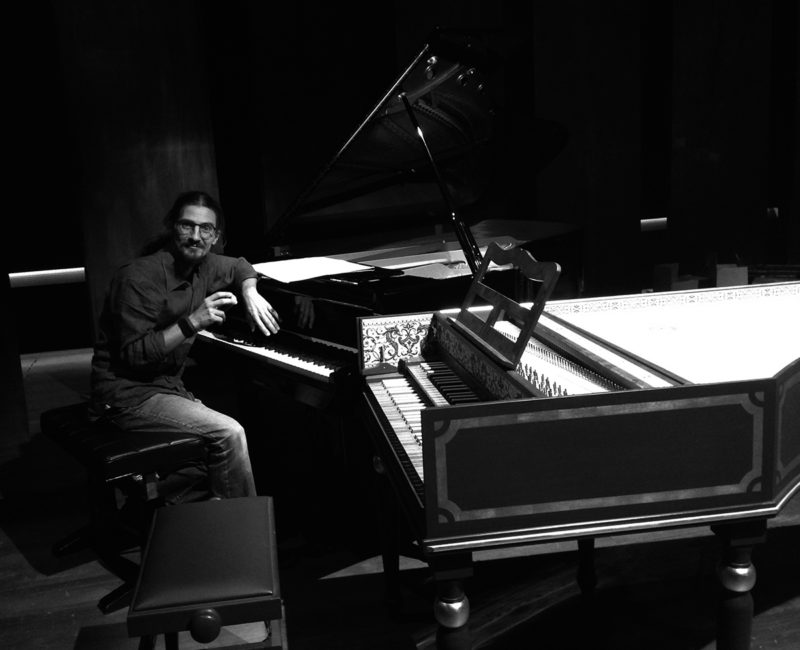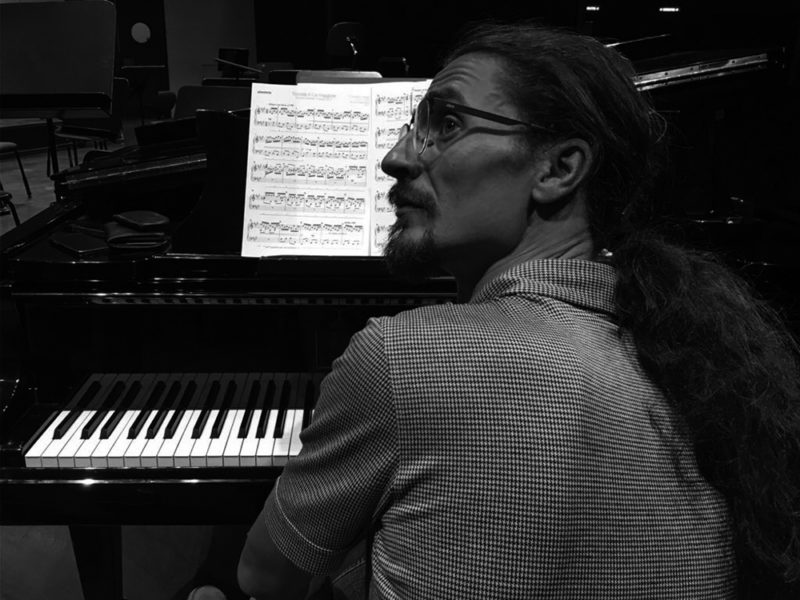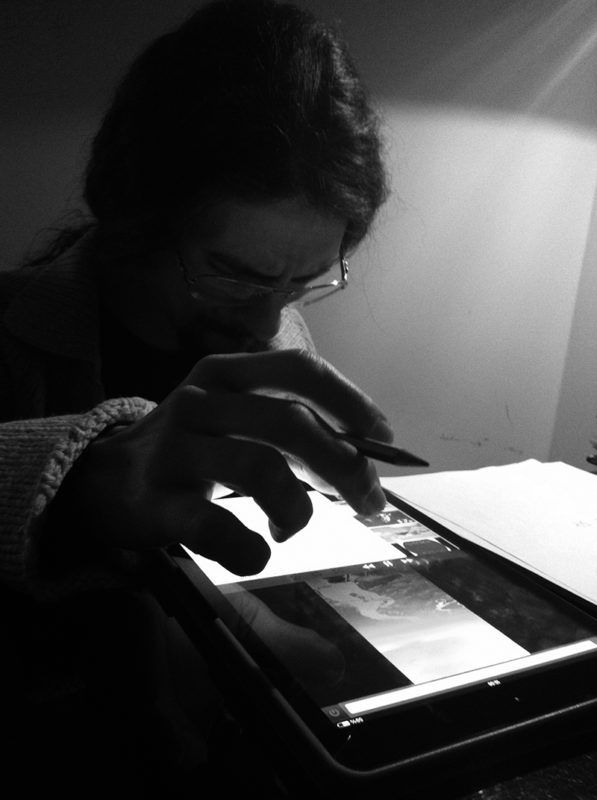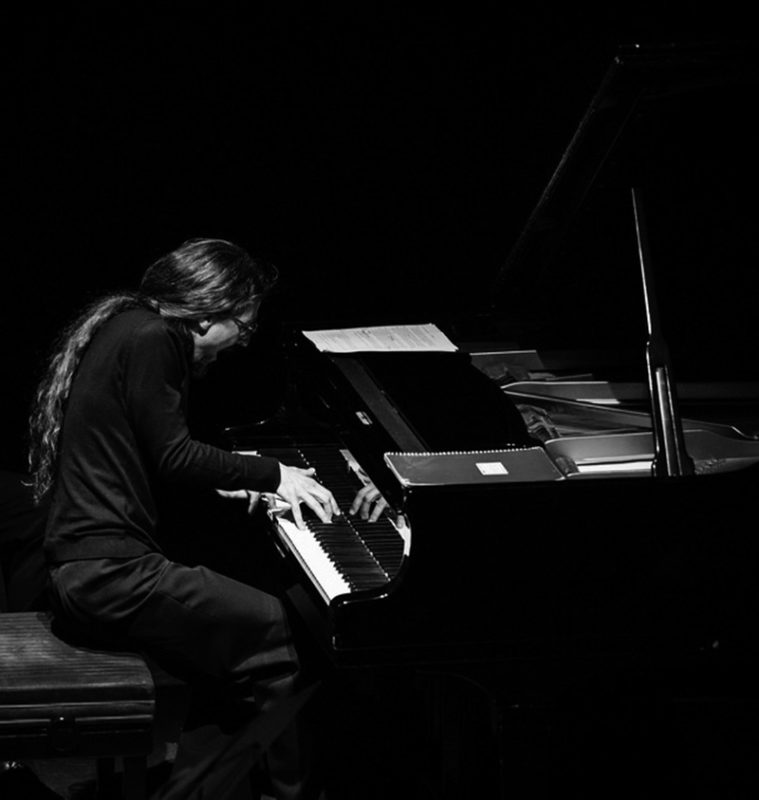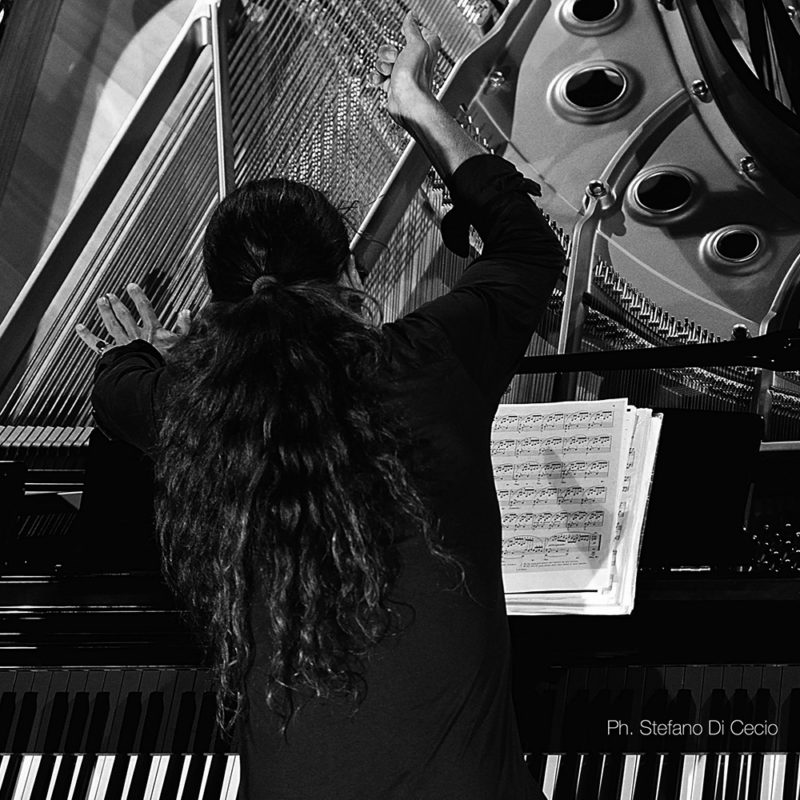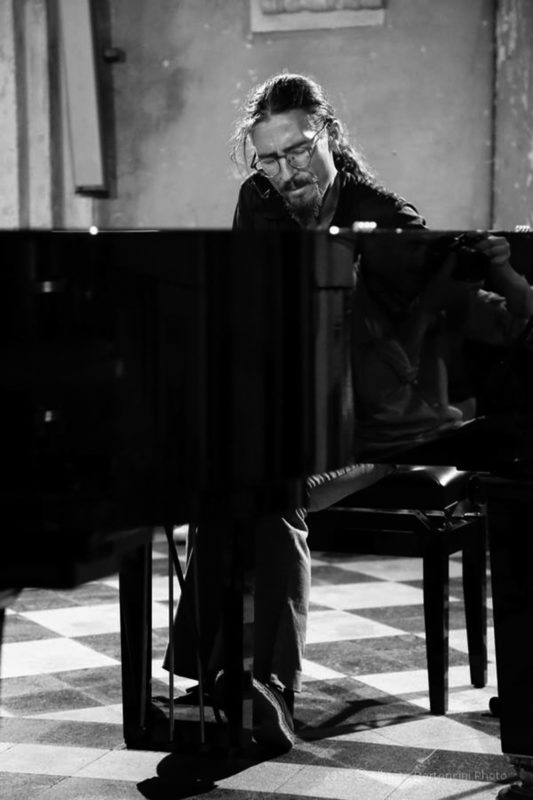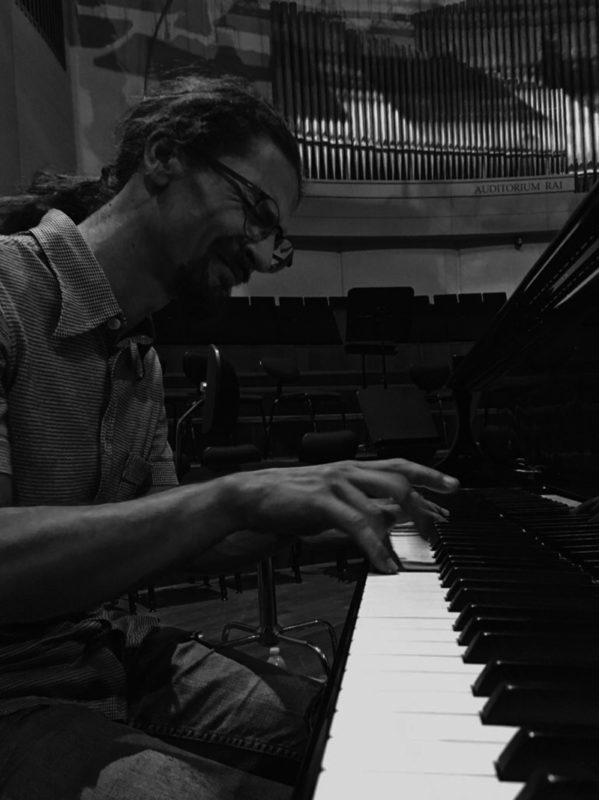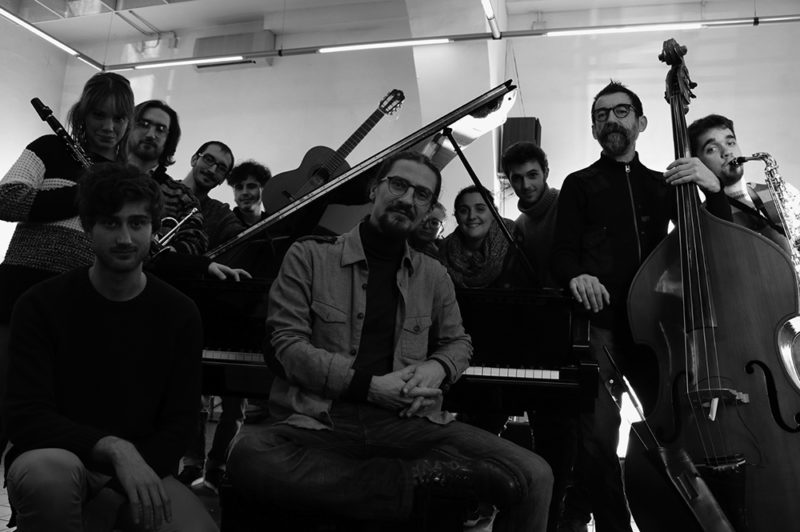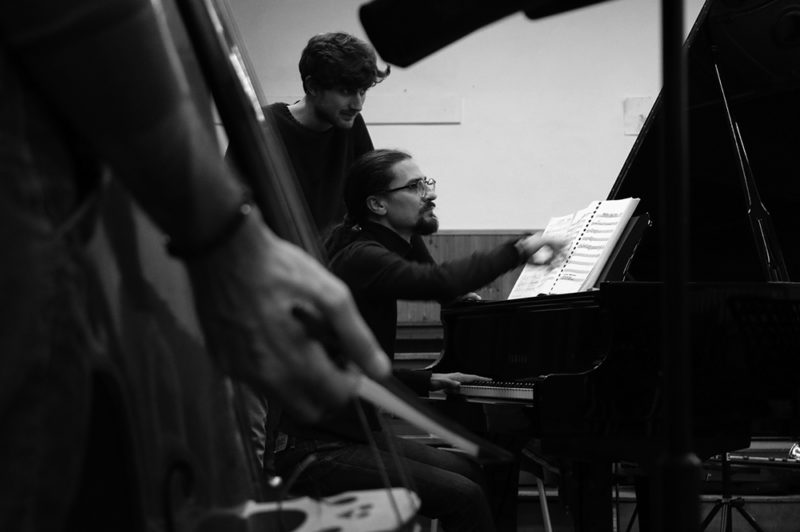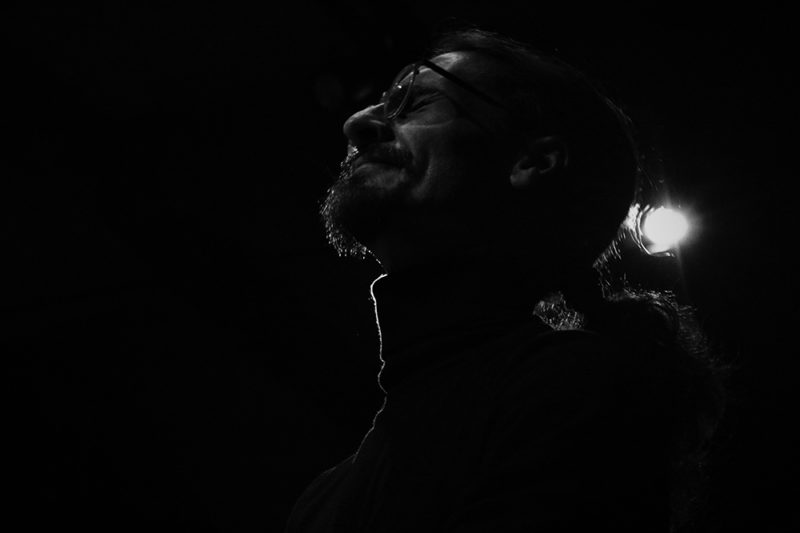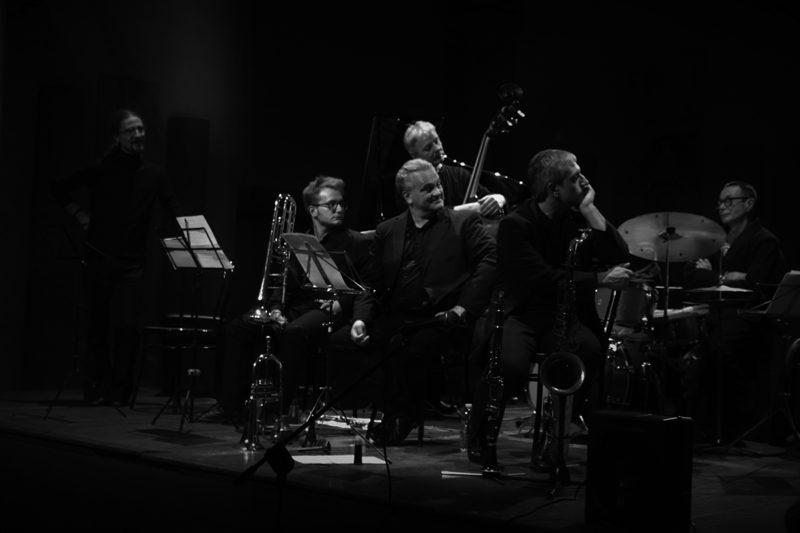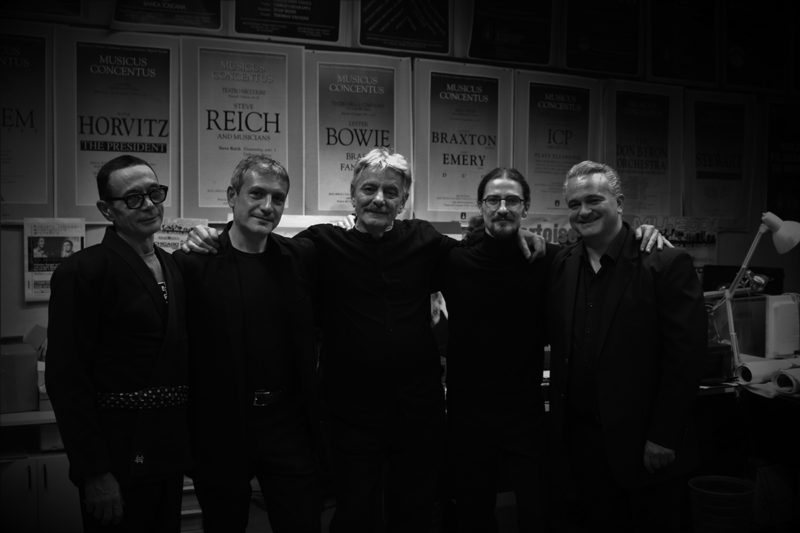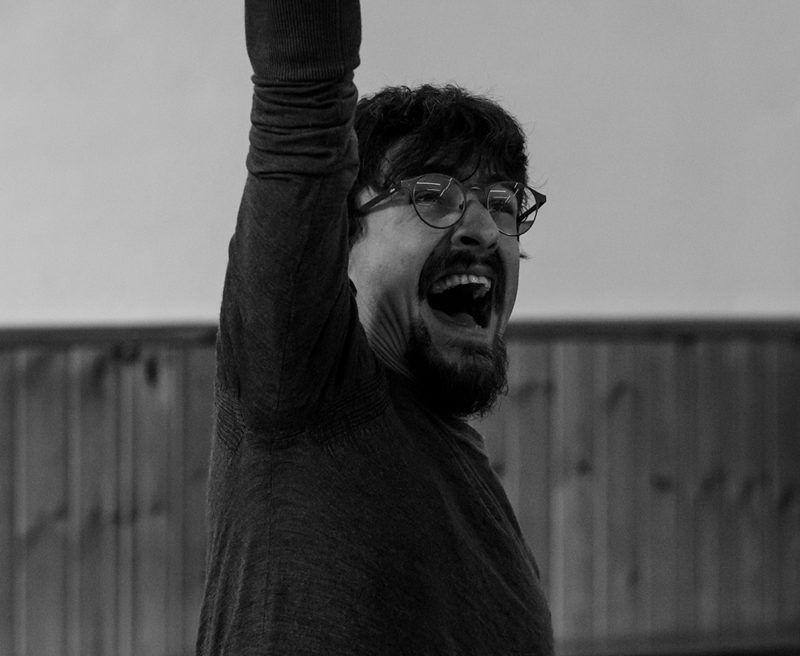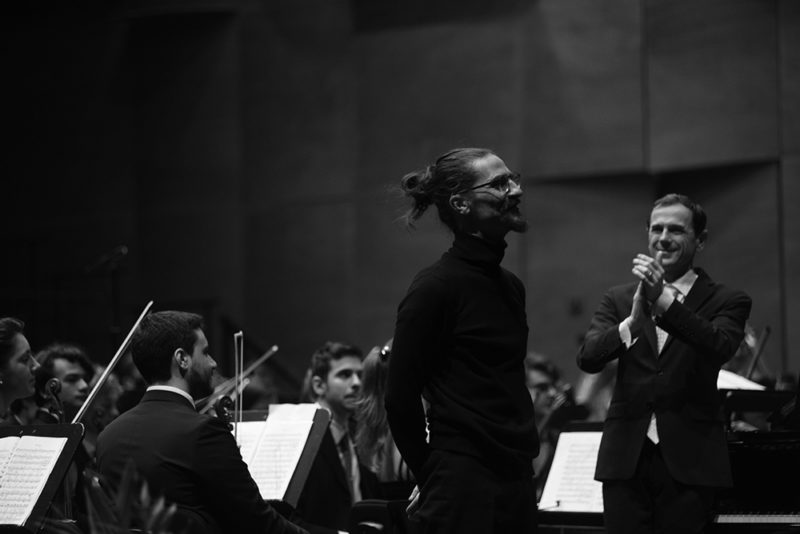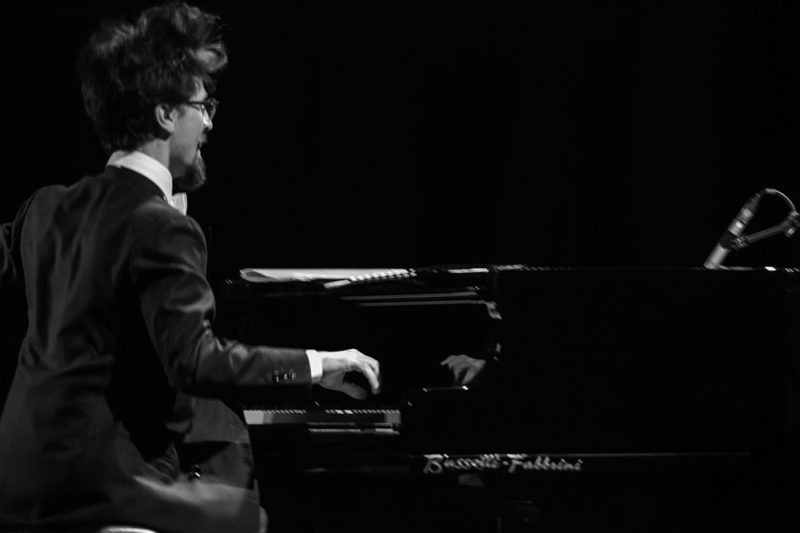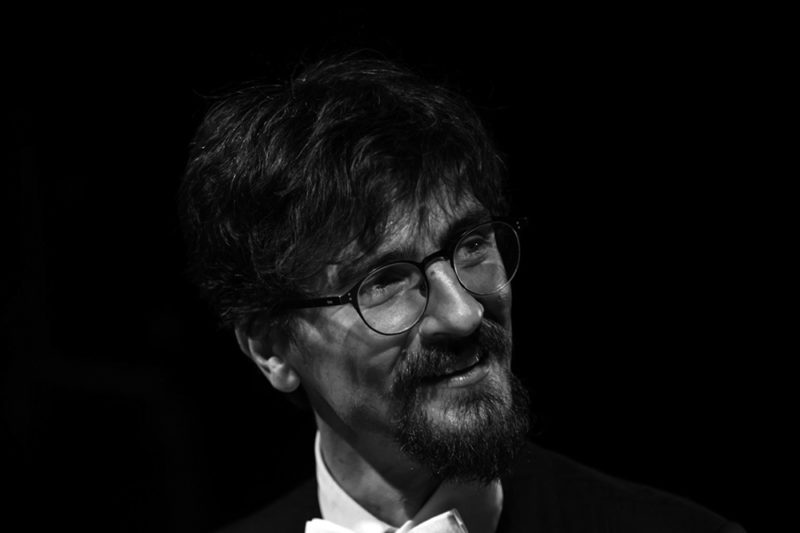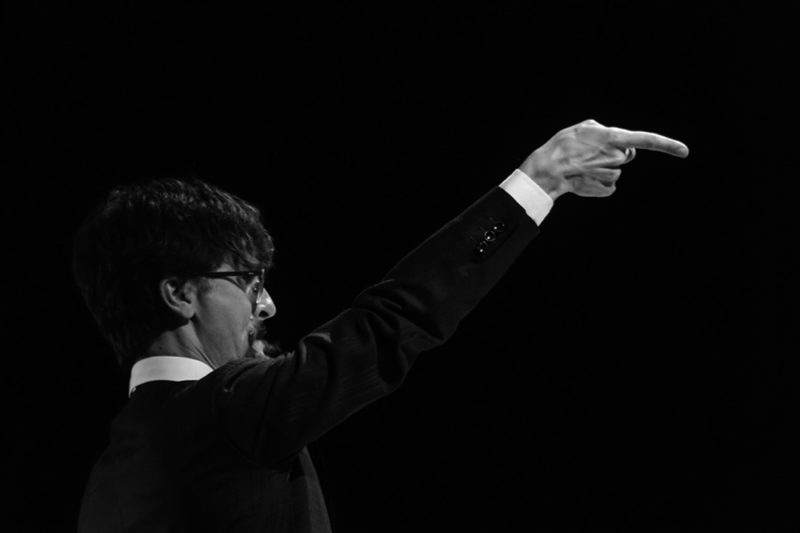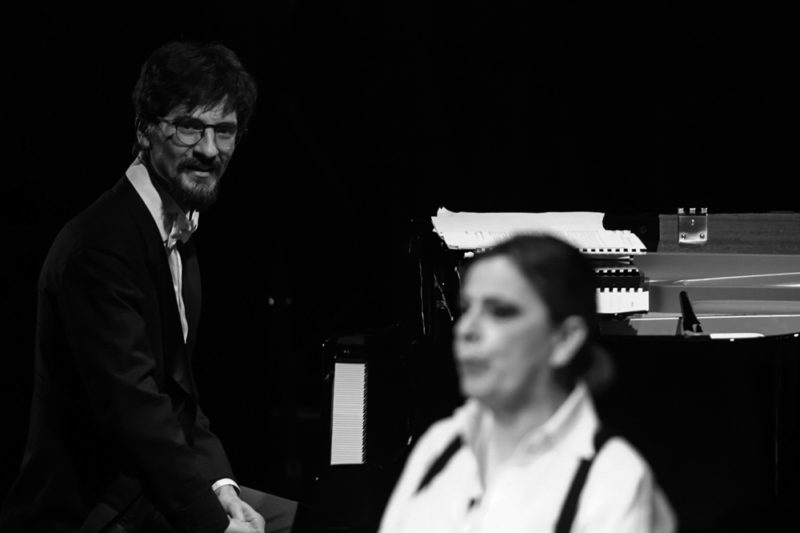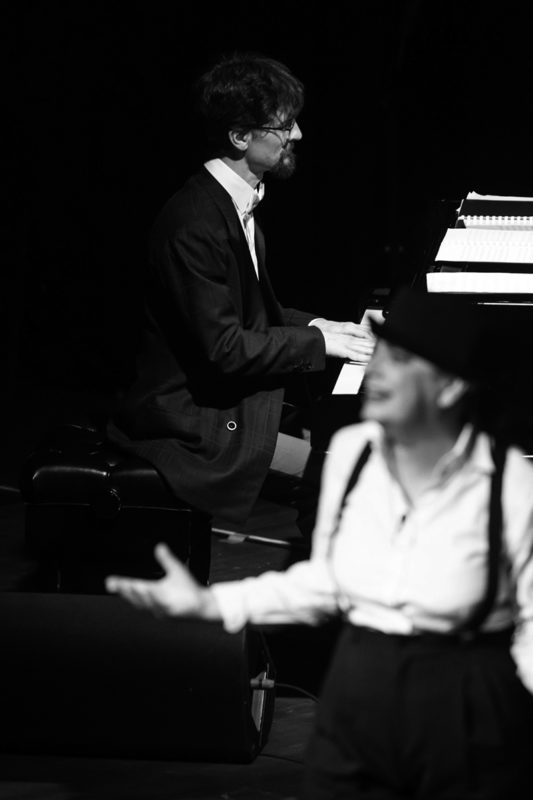Media
Images
Videos
Notes
La musica deve occuparsi di quei “mondi”...
La musica deve occuparsi di quei “mondi” che l’uomo attuale non conosce, né riconoscerebbe a causa di un’ipertrofia emotiva/spirituale dalla quale è affetto.
In questo, la musica è scienza e medicina. Il suo scopo è liberare l’uomo da quell’unica “dimensione” abituato a valutare. L’uomo deve esplorare, scoprire, conoscere e costruire sulle “altre” dimensioni. Deve abituarsi all’idea che i “mondi” che compongono l’universo della Creazione siano raggiungibili.
Music must deal with those “worlds” that the today’s man neither knows, nor recognizes because of an emotional-spiritual hypertrophy with which he is afflicted.
In this, music is science and medicine. Its purpose is to free man from that single “dimension” that he is accustomed to evaluating. Man must explore, discover, learn, and build upon “other” dimensions. He must become accustomed to the idea that the “worlds” making up the universe of Creation are attainable.
La biografia di un musicista dovrebbe essere espressa...
La biografia di un musicista dovrebbe essere espressa dalla musica che suona piuttosto che dal “dove”, “quando” o “con chi” l’ha suonata.
In caso contrario, un curriculum ci pone di fronte solo una sgradevole sensazione di incompletezza.
A musician’s biography should be expressed through the music that is performed rather than by those who have played it, or when, or where.
Otherwise, a curriculum vitae places us before merely an unpleasant sense of ambiguity.
L’immaginazione, più di ogni altra cosa...
L’immaginazione, più di ogni altra cosa, è l’elemento che ci permette di stabilire il nostro dominio sulla realtà.
More than anything else, the element that allows us to establish our dominion over reality is the imagination.
La musica non dovrebbe mai...
La musica non dovrebbe mai incitare alla violenza ma al rafforzamento dell’immaginazione. Il concetto stesso di “violenza” dovrebbe essere estraneo ad ogni musicista. Un musicista opera per la pace anche attraversando innumerevoli conflitti di varie nature.
Music should never incite violence, but strengthen the imagination. The very concept of “violence” should be foreign to every musician. A musician works for peace even via the innumerable conflicts of various natures.
Ci sono alcuni modi per...
Ci sono alcuni modi per arrivare ad imboccare la propria strada:
– Attraverso l’accumulazione di materiale
– Attraverso la sottrazione di materiale
– A causa di una predestinazione
Ad ogni modo, imboccare la propria strada non vuol dire percorrerla.
There are a few ways to arrive at setting one’s own course:
– Through the accumulation of material
– Through the removal of material
– As a result of predestination
In any case, setting one’s own course does not mean following it.
Noi tutti veniamo educati al suono...
Noi tutti veniamo educati al suono in innumerevoli modi e condizioni. I rumori della città, i suoni della campagna, il tono della voce…tutto intorno a noi è rappresentato dal suono e attraverso questo ogni capacità ricettiva è attivata. Ne consegue che una buona capacità intuitiva, ricettiva, organizzativa, percettiva, ha il suo inizio nel suono in quanto vibrazione. Una buona educazione ad esso creerà senz’altro esseri migliori, capaci di sviluppare in maniera qualitativamente alta le proprie potenzialità. Per contro, una scorretta educazione tenderà a produrre individui instabili, incapaci di elaborare un completo sviluppo del proprio destino genetico.
Our education in sound takes place in countless ways and situations. Everything around us—the noises of a city, the sounds of the countryside, and the tone of a voice—is represented by sound and, through this, each receptive capacity is enabled. It follows that a good capacity—one that is intuitive, receptive, organizational, and perceptual—has its beginning in sound as vibration. With good training, better individuals capable of a qualitatively superior development of their potential are certainly created. On the other hand, improper training tends to produce erratic individuals, unable to fully develop their own genetic destiny.
Se sostenere come verosimile che l’Universo è...
Se sostenere come verosimile che l’Universo è organizzato per mezzo, per causa e attraverso l’Entità Suprema, che non ha inizio né fine, è giusto supporre altresì che questa organizzazione rappresenti l’ordine e la conseguenza secondo cui Il Linguaggio agisce. Se dunque l’universo è di per se la prova di questo linguaggio, il suo sviluppo, possiamo supporre che il Suono, in quanto matrice, sia il linguaggio stesso. E siccome tutto avviene tramite il suono, [Logos], tutto nell’Universo è linguaggio, tutto è permeato di linguaggio, tutto agisce sotto l’impulso del Linguaggio stesso.
If insisting on the plausibility of the universe being organized by, as a consequence of, and through the Supreme Being, which has no beginning or end, it is also fair to assume that this organization represents the order and consequence according to which language acts. Thus, if the universe itself is evidence of this language and its development, we can assume that sound, as the matrix, is that language itself. Since everything is done through sound, Logos, and everything in the Universe is language, with everything permeated by language, all acting under the impulse of the language itself.
Anche nella musica tendiamo...
Anche nella musica tendiamo ad evitare il rischio della vittoria preferendo la certezza della sconfitta.
Even in music, we tend to avoid the “risk” of victory, preferring the “certainty” of defeat.
E’ probabile che come conseguenza...
E’ probabile che come conseguenza dell’Unità del Genere Umano anche la Musica, per strade ancora imperscrutabili, approdi ad una sua Unità. Una unità che non farà più, probabilmente, distinzioni accademiche, né di genere.
It is likely that as a result of humanity’s unity that even music, along still inscrutable paths, achieves one of its unities, a unity that most likely will no longer make academic or generic distinctions.
C’è troppa teoria nella musica...
C’è troppa teoria nella musica occidentale. Gli uomini si affaticano a costruire teoremi su scale, accordi, ritmi, melodie. Memorizzano strutture, edificano complesse architetture, analizzano, analizzano, analizzano. Quello musicale è un mondo di teorici, cattedratici che hanno imparato tutto della musica eccetto la musica stessa. E la spiegano. La spiegano continuamente.
There is too much theory in Western music. People labor to build theorems on scales, chords, rhythms, and melodies. They memorize structures, build complex arrangements, and analyze, analyze, analyze. The musical world is one of theorists and professors who have learned everything about the music but not about music itself. They explain it, they are constantly explaining it.
Gli uomini sono continuamente occupati a...
Gli uomini sono continuamente occupati a conservare la memoria quando, in realtà, dovrebbero preoccuparsi di crearne una nuova.
Men are constantly involved in preserving memories when, in fact, they should be creating new ones.
Tutto nell’Universo si traduce in...
Tutto nell’Universo si traduce in comunicazione. Non esiste particella del Regno Infinito che non comunichi con altre particelle. La comunicazione è intrinseca [nelle cose]. Che un uomo asserisca di voler comunicare, di sentirne l’esigenza, ha lo stesso valore di evidenziare un’evidenza. Tutto comunica. Se anche un uomo stesse in silenzio, se anche si rifiutasse di parlare, guardare, odorare, ascoltare, anche allora assisteremmo ad un mero fenomeno di comunicazione. Non ci si può sottrarre. Diffidate di quegli artisti che vi comunicano della loro esigenza di comunicare, come se fosse esperienza unica e di loro pertinenza. Come se dovessero convincervi d’aver scoperto qualcosa che voi stessi ignorate. Come se la comunicazione nasca da loro e per mezzo di loro si propagasse, in maniera esclusiva. Costoro non conoscono la loro stessa natura e pertanto ignorano la vostra, di conseguenza. Tutto è comunicazione. Non ci si può sottrarre a questo processo, nessuno, mai. E’ una legge.
Everything in the universe translates into communication. There is no particle of the Infinite Kingdom that does not communicate with other particles. Communication is inherent [in things]. A man who claims to want to communicate, to feel the need to communicate has the same value to highlight the evidence. Everything communicates. Even if a man was silent, even if he refused to talk, look, smell, or listen, even then we would be witness to a mere phenomenon of communication. It cannot be removed. Be wary of those artists who communicate their need to communicate, as if it was a unique experience and relevance to them. As if they had to convince you of having discovered something that you yourselves ignored. As if communication arises from them and is spread exclusively through them. They do not know their own nature and therefore, they consequently ignore yours. Everything is communication. No one can escape this process. No one. Ever. It is a law.
Quello della conoscenza è certamente...
Quello della conoscenza è certamente un paradosso, o perlomeno rappresenta un pericolo. Da una parte vi è la necessità impellente di studiare, analizzare il passato, ricordare, gestire e conservare ciò che l’uomo prima di noi ci ha tramandato. Non farlo sarebbe una mancanza di rispetto e, probabilmente, un sacrilegio a quella “forza vitale” che ci ha preceduto e permesso di essere ciò che oggi siamo. Dall’altro vi è il pericolo di questo stesso atto. Il pericolo di gestire e conservare in maniera immutata questo variegato e complesso background. Fermarsi alla storia, al nostro passato, vincolarsi alla contemplazione di questo, assurgerlo a “condizione inevitabile di espressione e identificazione” significa non considerare affatto l’uomo del futuro. Significa non possedere una visione di una società futura, significa non avere una esperienza dell’eternità. Del resto, negarlo, evitarlo o ignorarlo equivarrebbe al non avere compreso il nostro posto nel mondo, la nostra identità.
Nella migliore delle ipotesi, duemila anni di storia dovranno pur permetterci di scegliere quale direzione percorrere per il nostro futuro! In fondo, è da lì che proviene lo stimolo e la necessità per una nuova musica, una nuova letteratura, un’arte nuova, una organizzazione sociale nuova. In caso contrario, questi duemila anni saranno per certo la nostra stimata zavorra che ci accompagnerà verso il fondo più nero dell’abisso al grido di “noi eravamo”!
Knowledge is certainly a paradox, or at least it represents a danger. On the one hand, there is a compelling need to study and analyze the past, to record, manage, and preserve that which has been passed down by men before us. To not do so would be a lack of respect and probably a sacrilege to the “life force” that has preceded us and allowed us to be what we are today. On the other hand, there is the danger of this same act, the danger of immutably managing and storing this diverse and complex background. Stopping at history, our past, being forced to contemplate this. Raising it to the “inevitable condition of expression and identification” means not considering the man of the future at all. It means not having a vision of a future society; it means not having an experience with eternity. Moreover, to deny, avoid, or ignore it would be to not have understood our place in the world, our identity.
At best, two thousand years of history have also allowed us to choose in which direction our future will go! Ultimately, it is from there that the urge and the need arises for new music, new literature, new art, and a new social organization. Otherwise, these two thousand years will certainly have been the prized weight that will take us to the bottom of the blackest abyss shouting “we existed!”
Ogni approccio ad una cultura antica...
Ogni approccio ad una cultura antica, o tradizionale che sia, da parte di un soggetto “esterno” crea di per se una nuova forma di comprensione e una “espansione” della stessa. E’ inevitabile. Questo mi sembra interessante.
Every approach to an ancient or traditional culture by someone from “outside” essentially creates a new form of understanding and an “expansion” of the same. It is inevitable. I find this interesting.
La musica evolve in tutte le...
La musica evolve in tutte le direzioni. Il suo carattere è universale, il suo scopo è universale, il suo luogo è l’Universo.
Music evolves in all directions. Its character is universal, its purpose is universal, its place is the universe.
In ogni angolo della nostra vita...
In ogni angolo della nostra vita c’è sempre qualcosa che ci parla del nostro futuro. A ben vedere, dispersi negli anfratti del nostro passato ci sono sogni, frasi, eventi premonitori. Col senno di poi, alcuni di noi, i più evoluti, riescono a rievocarli e comprendere che ciò che hanno visto, udito, vissuto non era che la rappresentazione di un divenire. Il più delle volte, invece, la gente non presta attenzione né fede a quei ricordi, limitandosi a vivere in un increscioso susseguirsi di eventi da annoverare ad un presunto calcolo probabilistico. Le menti illuminate, gli uomini spirituali, riescono invece fin da subito a scorgere e leggere ogni segno, ogni piccolo evento luminoso così da potersi definire con franchezza “uomini del futuro”. Queste persone singolari non hanno fretta di arrivare a niente. Loro vivono in un continuum che li rende liberi dai pregiudizi e vincolati alla felicità. Poiché, nel loro agire o pensare non v’è distinzione fra sogno e realtà.
In every corner of our lives, there is always something that speaks to us of our future. Looking closely, scattered among the crevices of our past, we have dreams, expressions, and premonitions. In hindsight, some of us, the most advanced, are able to recall them and understand that what they have seen, heard, and experienced was not that the representation of a becoming. More often, however, people do not pay attention to or have faith in those memories, merely living in an unfortunate series of events to be counted with a supposed calculus of probability. Enlightened minds and spiritual men, however, have managed to immediately see and read every sign, every little event bright by being able to define themselves honestly as “men of the future.” These individuals are in no hurry to come to nothing. They live in a continuum that frees them from prejudices and binds them to happiness, since there is no distinction between dream and reality in their actions or thoughts.
Ciò che l’uomo crea è destinato...
Ciò che l’uomo crea è destinato ad altri uomini. Quale che sia il pensiero che ha originato la cosa, l’interesse preliminare, tutto ciò che immettiamo su questo pianeta sarà inevitabilmente integrato nella sua stessa struttura. Per questo motivo non dovremmo mai appropriarci delle cose ma imparare a farne uso. Esse sono lì per noi. È altrettanto importante restituire il favore e, rigettando la nostra avidità e le brame vergognose del nostro ego, imparare a citare la fonte, ricordare sempre l’inventore che ci ha permesso di sviluppare e accrescere il nostro progresso, il nostro vantaggio. Basterebbe questo come legge a favore del copyright.
Whatever man creates is meant for other men. Whatever the thought giving rise to it, the initial interest, everything that we put on this planet will inevitably be integrated into its own structure. For this reason, we should never take possession of things but should learn how to use them. They are there for us. It is equally important to return the favor and, rejecting our greed and the shameful thirsts of our ego, to learn how to cite the source, always remembering that the inventor has made it possible for us to develop and enhance our progress, our advantage. This would be enough, like the law supporting copyright.
Ogni Suono proviene...
Ogni Suono proviene dallo Spazio. Tutto lo Spazio proviene dalla Giustizia. Tutta la Giustizia proviene dall’Amore. Tutto l’Amore proviene da Dio. La totalità di Dio proviene da Dio.
Every sound comes from space. All space comes from justice. All justice comes from love. All love comes from God. The totality of God comes from God.
I mondi di Dio...
I mondi di Dio sono fatti di musica.
God’s worlds are made of music.
Non dovrebbe esistere nessun confine...
Non dovrebbe esistere nessun confine tra la vita di un’artista e la sua arte. Le due cose dovrebbero compenetrarsi armoniosamente. Anzi: solo una realtà dovrebbe esistere: l’arte stessa (nella complessità dei suoi innumerevoli composti).
There should be no division between an artist’s life and his art. These two things should be equally appreciated. Indeed, only art itself should truly exist (in the complexity of its many variations).
Una musica votata unicamente all’estetica...
Una musica votata unicamente all’estetica è una musica destinata a morire, esattamente come ogni concetto estetico.
Any music judged solely by aesthetics is one that is destined to die, exactly like every aesthetic concept.
Di fatto, tutta la materia esistente...
Di fatto, tutta la materia esistente è una materia che respira, che produce continuamente movimento e dunque “suono”.
E’ inevitabile che, affinchè ci sia movimento, debba esistere un corpo in grado di produrlo (non si potrebbe produrre movimento e quindi suono senza un corpo che vibri).
Del resto, però, se un corpo non producesse alcuna oscillazione, esso non potrebbe essere “definito” (quindi nemmeno essere identificato, dunque sarebbe di fatto inesistente).
E’ ovvio quindi, che la matrice fondamentale della vita/esistenza sia l’oscillazione, il movimento, il suono. Senza questo nulla potrebbe esistere. E’ per questo motivo che dobbiamo attribuire al movimento la più ampia considerazione partendo dal presupposto che Esso sia non solo un mero evento fisico ma, piuttosto, una vera e propria “matrice” dell’Esistenza. In questi termini, possiamo dunque supporre che l’oscillazione (la pulsazione, la vibrazione, il movimento) contenga in se il principio dell’ Etica (in quanto “fenomeno distintivo”, cioè quel fenomeno per il quale è possibile considerare una distinzione[vivo/morto, bello/brutto, giusto/sbagliato eccetera]).
Se dunque il suono è (anche) una Forza Etica, la musica necessariamente dovrà contenere in sé questa Forza Etica. Pretendere di non considerare quest’aspetto della scienza è pura cecità.
Indeed, all existing matter is material that breathes, continuously producing movement and therefore “sound”.
It is inevitable that, as long as there is movement, there must be a body that can produce it (it cannot be produced without movement and thus sound without a body that vibrates).
For the rest, however, if a body does not produce any oscillation, it could not be “defined” (hence, not even be identified, therefore, it would indeed be non-existent).
It is therefore obvious that the fundamental matrix of life/existence is oscillation, movement, and sound, without which nothing could exist. It is for this reason that we must give the broadest consideration to movement, starting from the assumption that it is not just a mere physical event, but rather a true existential “matrix”. In these terms, we can therefore assume that contained within this very oscillation (pulsation, vibration, movement) is the ethical principle (as a “distinctive phenomenon”, namely that phenomenon for which a distinction [living/dead, good/bad, right/wrong, etc.]) may be considered.
So if sound is (also) an ethical force, music itself must inevitably contain this ethical force. Pretending to not consider this aspect of science is pure blindness.
Il compito più importante...
Il compito più importante della musica è quello di cambiare le cose in meglio.
Music’s most important task is to change things for the better.
L’informazione è...
L’informazione è linguaggio. Il linguaggio è suono. Il suono è informazione.
Information is language. Language is sound. Sound is information.
La Musica è...
La Musica è dove la si suona. E’ contestualizzata al momento, al luogo, al singolo per cui nasce e si sviluppa. Non può esistere musica al di fuori di questa concezione. Questo limite, per contro, non è un limite da attribuire alla musica, ma, piuttosto, al “qui ed ora“ che la definiscono.
Se IO definisco l’idea di Musica, IO rappresento il limite della musica stessa.
Music is where it is played. It is contextualized in that moment, place, and individual for which it was created and developed. There can be no music outside of this concept. This limit, however, is not one to be attributed to music, but rather to the here and now that define it.
If I am the one who defines the idea of music, it is I who represents the limit of the music itself.
Il nome è l’elemento che contraddistingue...
Il nome è l’elemento che contraddistingue le cose. Il nome ha un’identità e la determina allo stesso tempo. E’ composto da vibrazioni e le vibrazioni che lo compongono producono effetti sulle cose circostanti.
A name is the element that distinguishes things. A name has an identity which, at the same time, defines it. It consists of vibrations and those vibrations constituting it have an impact on things nearby.
Io sono una luce che risplende...
Io sono una luce che risplende nell’umanità. La mia anima è in lotta contro le tenebre. Per quanto la sua luce possa essere piccola, esile, prevarrà comunque su di esse.
I am a light that shines in humanity. My soul is struggling against the darkness. Although its light may be small and faint, it will nonetheless prevail over them.
Il musicista che suona “sempre bene”...
Il musicista che suona “sempre bene” è il musicista che ha poco da dire e passa e ripassa quel vocabolario più o meno ampio che gli permette di dire (bene) sempre le stesse cose, anche quando non ne ha voglia.
The musician who plays “well all the time” is one who has little to say and passes that relatively extensive vocabulary back and forth, which allows him to say the same things (well), even when he does not feel like it.
Sono interessato a quello che i musicisti...
Sono interessato a quello che i musicisti possono dare (e non “devono”) all’interno di un contesto musicale.
I am interested in what musicians can (and not “must”) give within a musical context.
La critica è quella branca del mercato che...
La critica è quella branca del mercato che, per parte sua, definisce e qualifica lo spaccio dei prodotti d’arte. E’ una sorta di distribuzione, ma con la pretesa d’essere più vicina all’arte stessa e di comprenderla e interpretarla meglio di chiunque altro.
Criticism is that branch of the market that, for its part, defines and describes the peddling of art products. It is a kind of distribution, but with the pretense of being closer to art itself and to understanding and interpreting it better than anyone else.
Questo commercio...
Questo commercio non garantirà la nostra evoluzione.
Commerce will not guarantee our evolution.
Quando, strategicamente, poni delle note sbagliate...
Quando, strategicamente, poni delle note sbagliate nel posto sbagliato ti accorgerai ben presto che non esistono note sbagliate né, tantomeno, posti sbagliati.
Strategically, when one puts the wrong notes in the wrong place, one very quickly realizes that there are no wrong notes, let alone wrong places.
Se la musica è il veicolo che...
Se la musica è il veicolo che, in una certa misura, permette di collegare l’uomo al suo Creatore, dobbiamo altresì supporre che il suo scopo non potrà essere solo quello dell’intrattenimento ma che inevitabilmente dovrà includere una componente spirituale, divulgativa, evocativa, educativa.
Though music is the vehicle that, to a certain extent, allows man to connect with his Creator, we must also assume that its purpose cannot be merely for entertainment but that it inevitably must include a spiritual component, which is popularizing, evocative, and educational.
Ci sono momenti in cui...
Ci sono momenti in cui, inspiegabilmente, appare chiara e fulgida, dentro di me, la Visione dell’Insieme. Un’Unità che tutto abbraccia e tutto comprende, immutabile nella sua vasta e irriducibile molteplicità, continuamente ammantata di cambiamenti. Questa Visione dell’Insieme, questa Unicità, questo Tutto che inaspettatamente si mostra e che ha la durata di una brevità, non è qualcosa che si può immaginare. E’ impossibile da comprendere. No, non è proprio cosa che si possa minimamente immaginare. La si può solo Vedere; poiché è una realtà così vasta e perfetta da non poter avere spazio nell’immaginazione: Lei stessa contiene in se questo fenomeno e non ne è contenuta. Dopo averla vista, immancabilmente si nasconde nuovamente, poiché tante sono le nubi e i venti che l’attraversano che non sempre la rendono manifesta. In quei momenti io mi sento fortunato, e disperato, e malinconico.
There are times when a vision of the whole is inexplicably clear and radiant inside of me, an all-embracing and all-encompassing, unchanging unity in its vast and irreducible multiplicity, continually cloaked by changes. This vision of the whole, this oneness, this everything that unexpectedly show itself and that lasts for an instant, is not something that can be imagined. It is impossible to understand. No, it is not really what one could imagine at all. It can only be seen since it is such a large and perfect world; there is no room for it in the imagination: it contains this phenomenon within itself and is not contained by it. After seeing it, it invariably is again hidden because there are so many clouds and winds crossing it that do not always let it be visible. In those moments I feel lucky, despairing, and melancholic.
Lo studente che si appresta...
Lo studente che si appresta ad imparare e che con sincerità si inoltra nel mondo della musica deve prima di tutto considerare il “tempo” come un suo alleato. L’ansia e la fretta di arrivare al traguardo devono essere abolite dal proprio cuore e ogni insegnante dovrebbe mostrare questa via come l’unica possibile. E anche quando, pronto e felice, entrasse nell’arena della musica, questo nuovo uomo avrà infine allontanato ogni ansia e interesse per lo scorrere delle ore, dei giorni, degli anni, contemplando solamente il panorama dell’infinito e le sue innumerevoli strade prive di tempo.
Il tempo, nella sua accezione più comune, è cosa che riguarda unicamente il mercato della musica e gli affari che in esso si consumano. Ha un inizio, ha una fine, come gli uomini che l’attraversano.
Ma la musica non ha un inizio, né una fine, se non che nella memoria di Dio.
The student who is prepared to learn and who, with sincerity, advances in the world of music must first of all consider “time” as one of his allies. Anxiety and the dash to the finish line must be abolished from his heart and every teacher should indicate this road as the only one possible. And even when, eager and happy, this new man entered the music arena, he finally removed all anxiety and concern by the passing of the hours, days, years, contemplating only the infinite landscape and its countless roads devoid of time.
Time, as most commonly understood, is something that concerns only the music market and the business carried out in it. It has a beginning and an end, just like the men who pass through it.
Yet music has neither a beginning, nor an end, other than in God’s memory.

